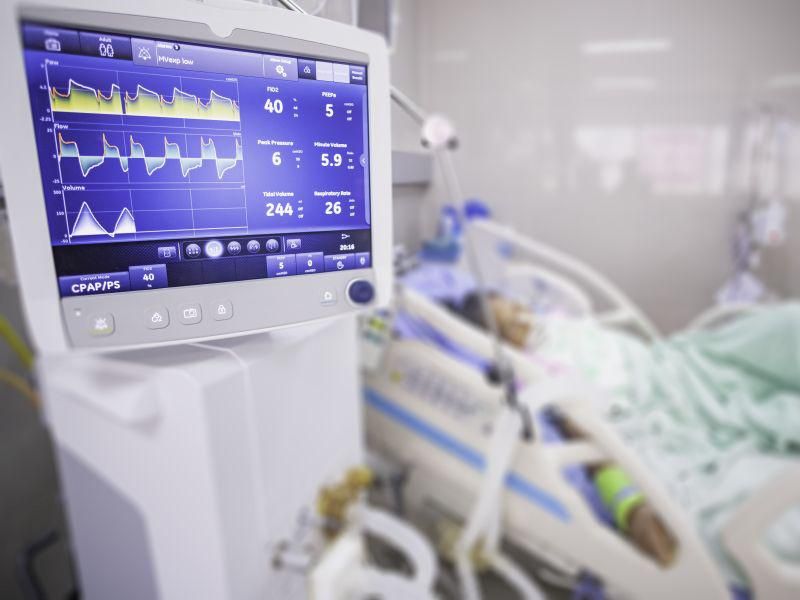WEDNESDAY, Feb. 10, 2021 (HealthDay News) — A lack of ICU beds and other resources was linked to a higher rate of deaths among hospitalized COVID-19 patients in the early stages of the pandemic in the United States, researchers say.
The investigators analyzed data collected from more than 4,400 hospitals nationwide from March 1 to July 26, 2020, and found that fewer resources per COVID-19 patient — including intensive care unit (ICU) beds, intensivists or critical care physicians, emergency physicians, nurses and general hospital beds — was associated with more deaths in April.
The strongest association was with ICU bed availability. For every additional ICU bed per COVID-19 case, there was a one-fifth decrease in the death rate during April, according to the team from Yale University in New Haven, Conn.
The researchers estimated that nearly 15,600 COVID-19 patients included in the analysis died due to lack of ICU beds during the month of April.
“As the country enters one of the darkest periods of the COVID-19 pandemic, with cases and hospitalizations anticipated to continue unabated in the coming months, the lessons of this work is clear — our hospital resources are finite, and a failure to implement the policies to prevent hospital overload is certain to result in deaths that could have been avoided,” study co-author Dr. Arjun Venkatesh, an associate professor of emergency medicine, said in a Yale news release.
In the United States, hospitals in the northeastern region were hardest hit by the first surge of COVID-19. Most of the hospitals with the greatest numbers of excess deaths were located in the Northeast, specifically in New York City, Boston, Philadelphia, Hartford, Conn., and Camden, N.J.
The researchers said that their findings provide important insights as the United States continues to struggle with high rates of COVID-19.
Study lead author Dr. Alexander Janke said that the report “is a worst-case scenario for what resource limitations might mean” for death rates. Janke is in the fourth year of a five-year combined residency and health services research fellowship.
“This is a phenomenon that’s close to the hearts of everyone in emergency medicine,” he added. “Sometimes patients have to wait hours or days to get a bed. Emergency medicine is really good at managing a patient’s first few hours of care, but that transition [to an ICU bed from the emergency department] needs to happen.”
The study was published recently in the Journal of Hospital Medicine.
More information
The U.S. Centers for Disease Control and Prevention has more on COVID-19.
SOURCE: Yale University, news release, Feb. 2, 2021
Copyright © 2026 HealthDay. All rights reserved.

